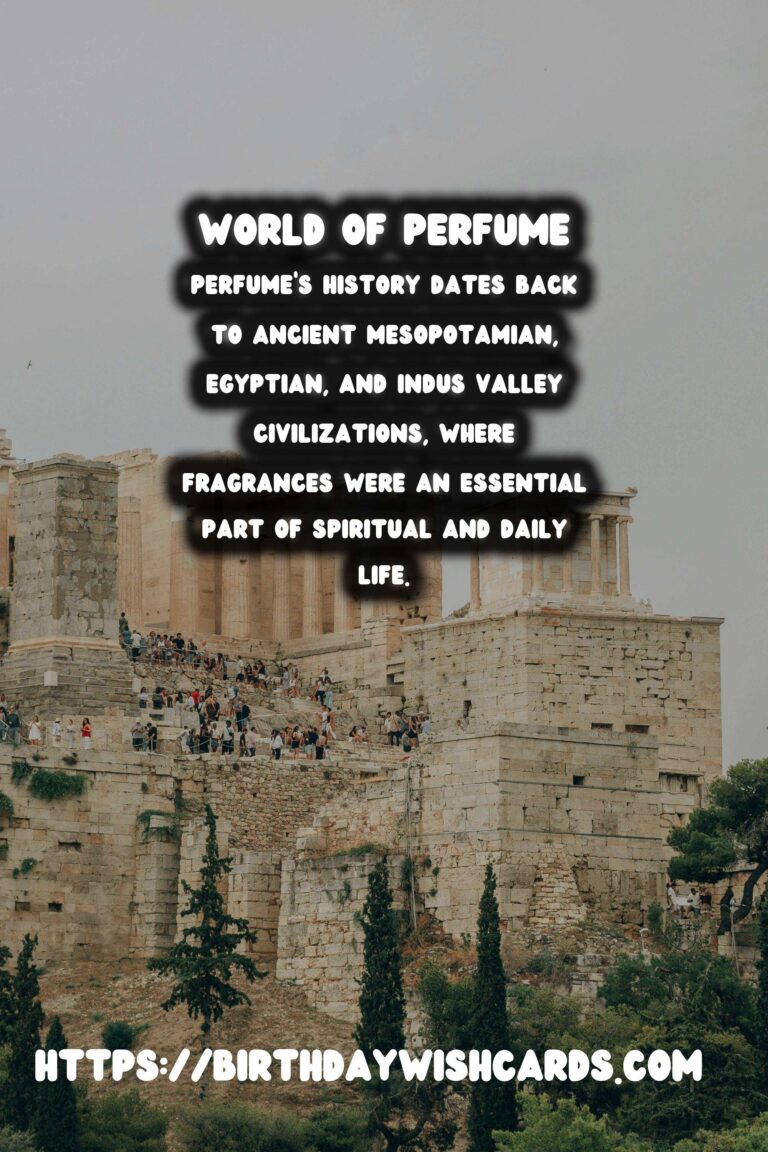
Perfume has long been an integral part of human civilization, enchanting people with its transformative qualities and rich aromatic allure. From the sacred religious rituals of ancient cultures to today’s fashion and luxury industry, the evolution of perfume tells a fascinating story of art, science, and societal change.
Ancient Beginnings
Perfume’s history dates back to ancient Mesopotamian, Egyptian, and Indus Valley civilizations, where fragrances were an essential part of spiritual and daily life. The oldest known perfumery was discovered in Cyprus and dates to the Bronze Age, around 4,000 years ago. These early perfumes were made by distilling natural materials like flowers, herbs, and spices, often blended with oils.
In Egypt, perfumes played a significant role not just in daily wear but also in religious ceremonies. The famous scents of the region, such as Kyphi, were made from ingredients like frankincense, myrrh, and other botanicals, sometimes used during mummification.
Spread Through Trade and Conquest
As civilizations advanced, the art of perfume-making spread across the ancient world through trade and conquest. The Greeks and Romans cherished perfumery, using oils and scented baths lavishly. With the expansion of their empires, they assimilated new aromatic ingredients from Asia and Africa.
The Middle Ages and the Influence of the Arabs
The fall of the Roman Empire didn’t put an end to the world of perfumes. The Arab world became the next hub for fragrance innovation. Arabic alchemists discovered how to distill alcohol, a process that laid the foundation for modern perfumery. Esteemed figures like Avicenna invented the steam distillation method, revolutionizing scent extraction from flowers.
Perfume was not just a symbol of luxury during this era but also served hygienic and aesthetic purposes, especially when bathing was less frequent.
The Renaissance: Rebirth of the Sense
The Renaissance marked a period of intense cultural and scientific growth in Europe, which saw perfumery flourish. Perfume production moved to Europe, anchored by the Italian and French industries, establishing France as the fragrance powerhouse we know today. The use of floral notes and complex blends became popular, with Catherine de Medici bringing Italian perfumery expertise to France upon her marriage to King Henry II.
The Modern Era: An Industry Blooms
The 19th and 20th centuries laid the groundwork for the modern perfume industry. Technological advancements and synthetic aroma compounds allowed for an unprecedented variety of fragrances. Houses like Guerlain, Coty, and Chanel broke ground with iconic scents that defined eras and fashion trends. Perfume evolved from a luxury for the elite to an accessible product for the masses in varied price ranges and forms.
The Global Perfume Industry Today
Today, the perfume industry is a global powerhouse, blending artistry with innovation. Major brands continually experiment with new compounds, sustainable practices, and marketing strategies to captivate consumers. The creation of niche perfumes adds even more layers to the personal expression of fragrance.
Perfumes now hold an important place in our daily lives, encompassing identity, emotions, and memories, bridging the past with modern sensibilities.
As the world of perfume continues to change and grow, it reflects the dynamic interplay between tradition, culture, and innovation.
Perfume has long been an integral part of human civilization, enchanting people with its transformative qualities and rich aromatic allure. Perfume’s history dates back to ancient Mesopotamian, Egyptian, and Indus Valley civilizations, where fragrances were an essential part of spiritual and daily life. 
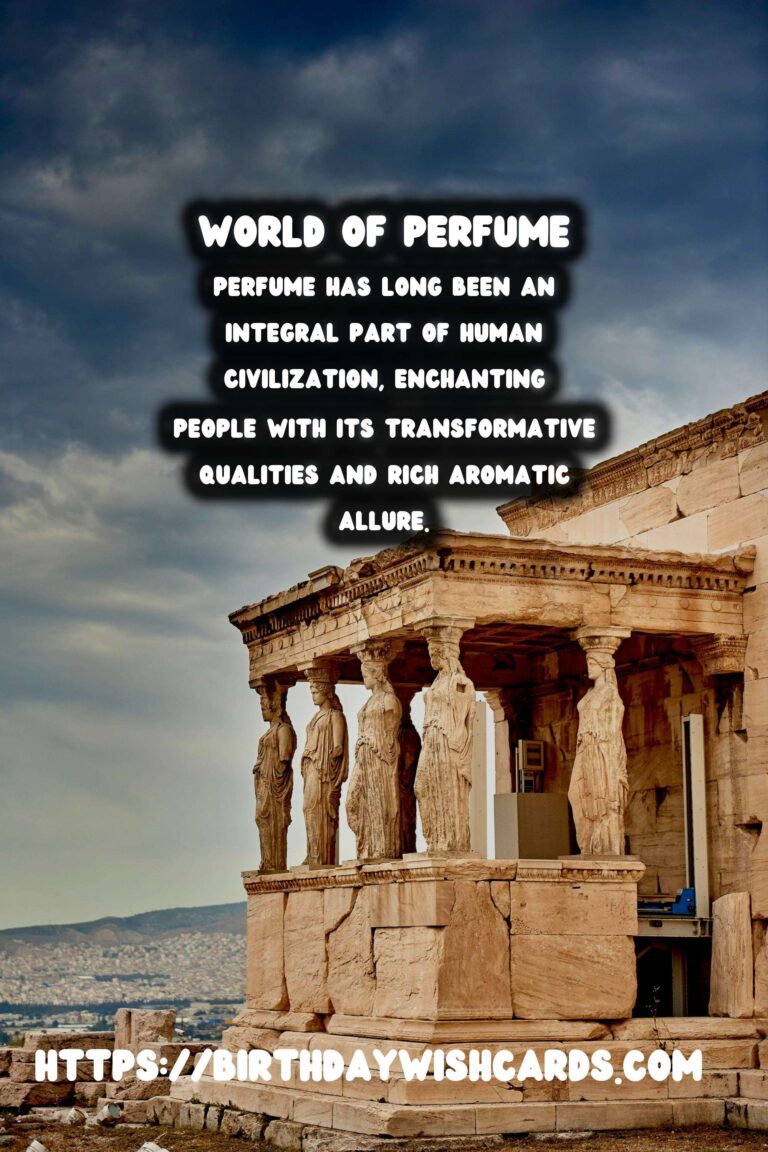
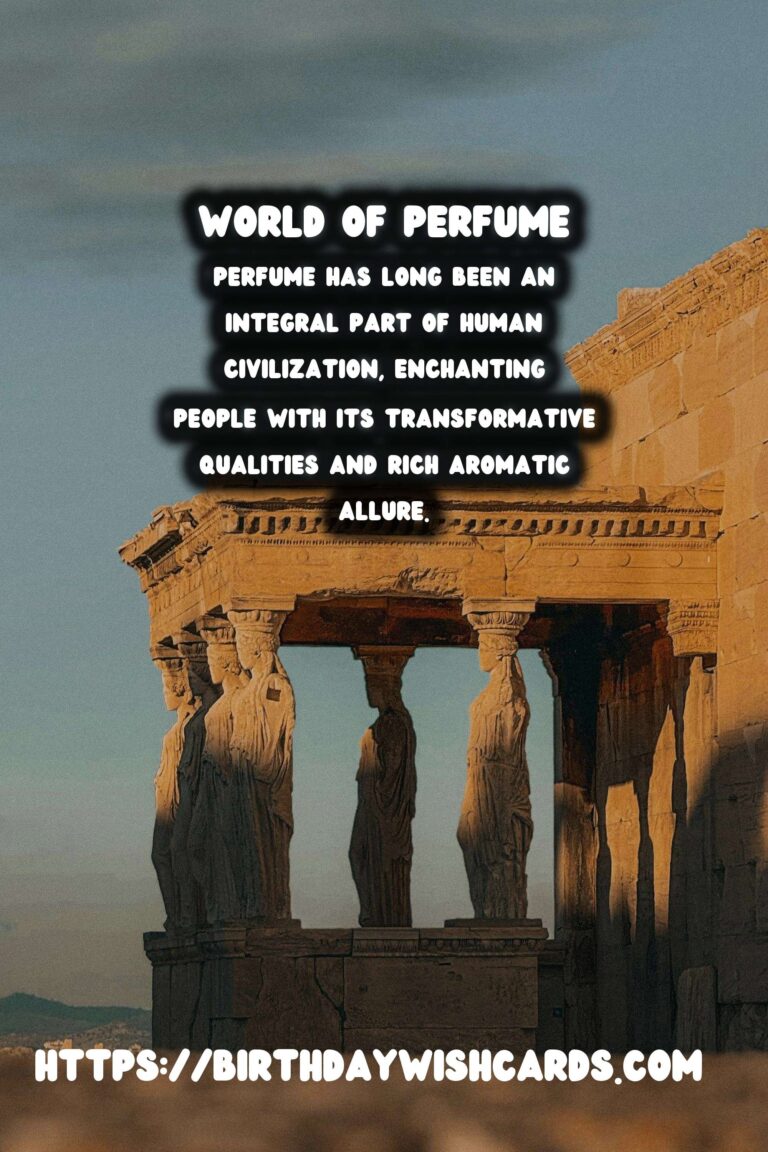
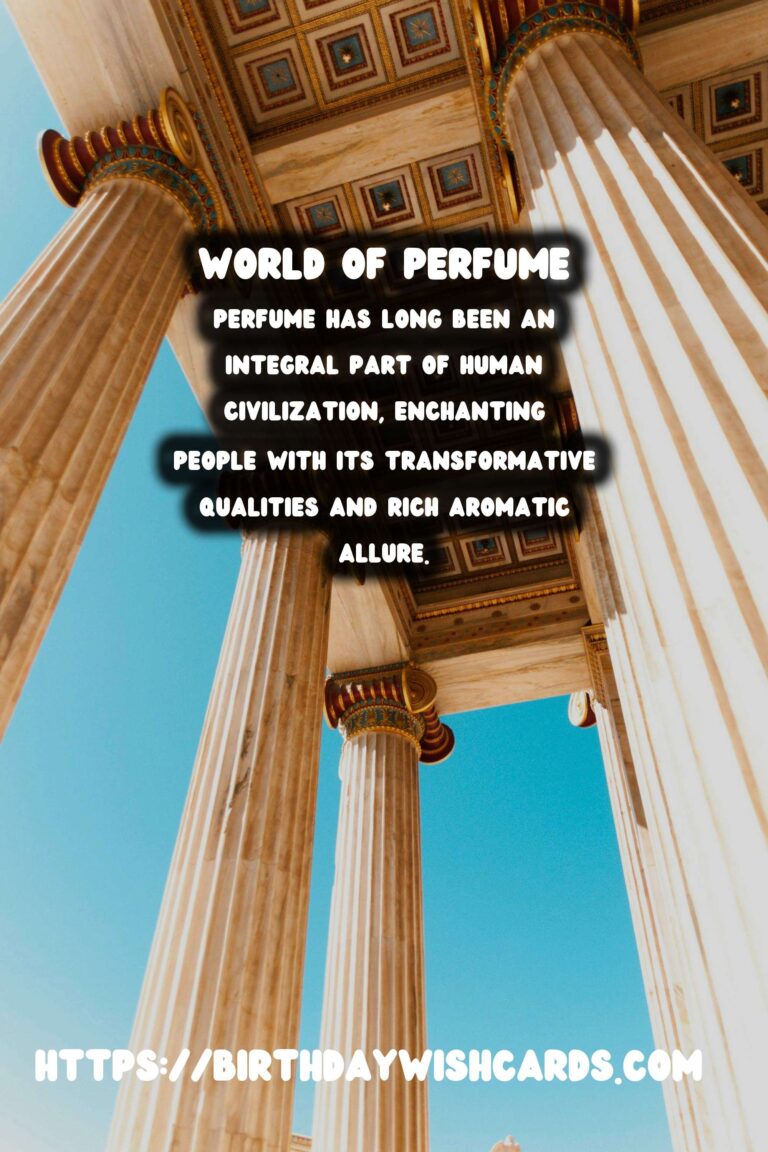
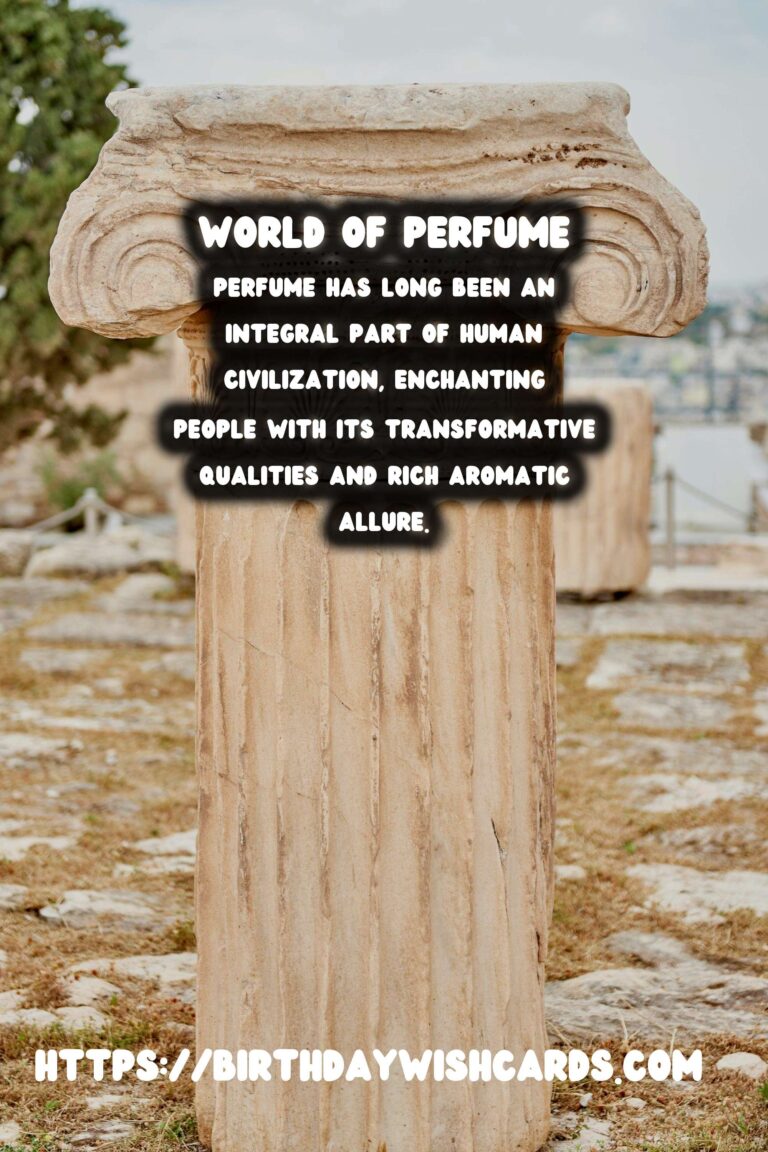
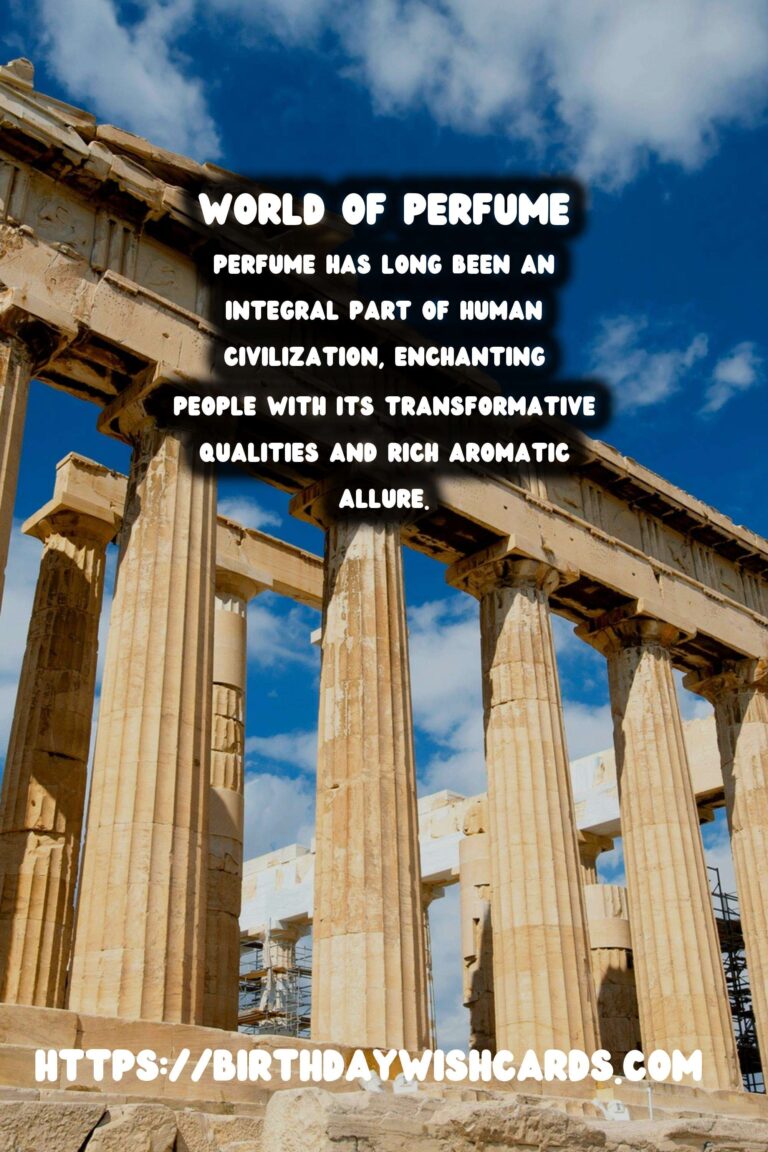
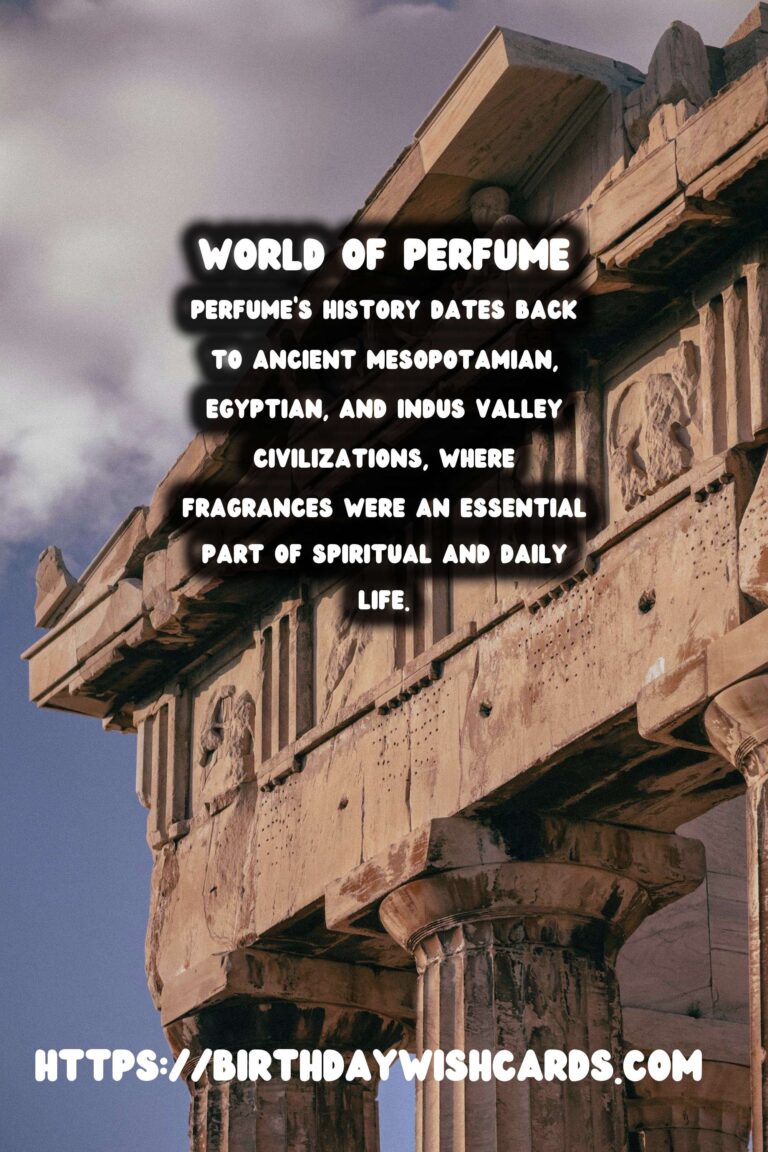
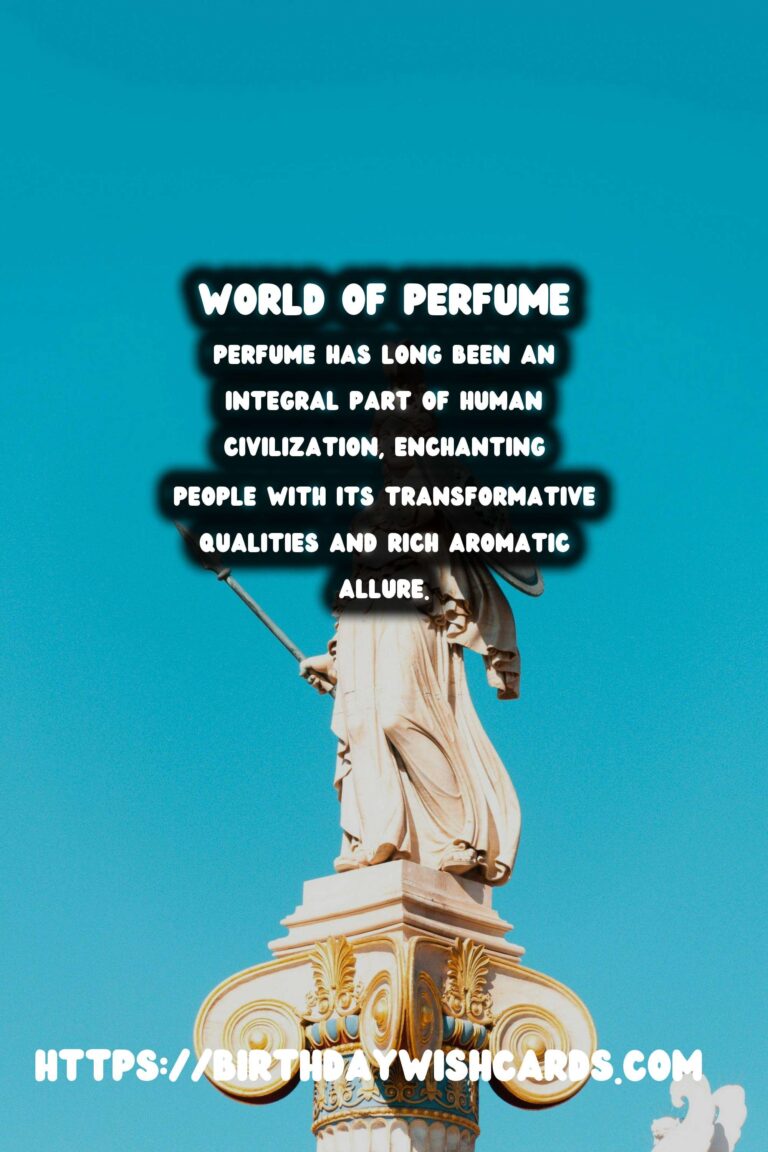
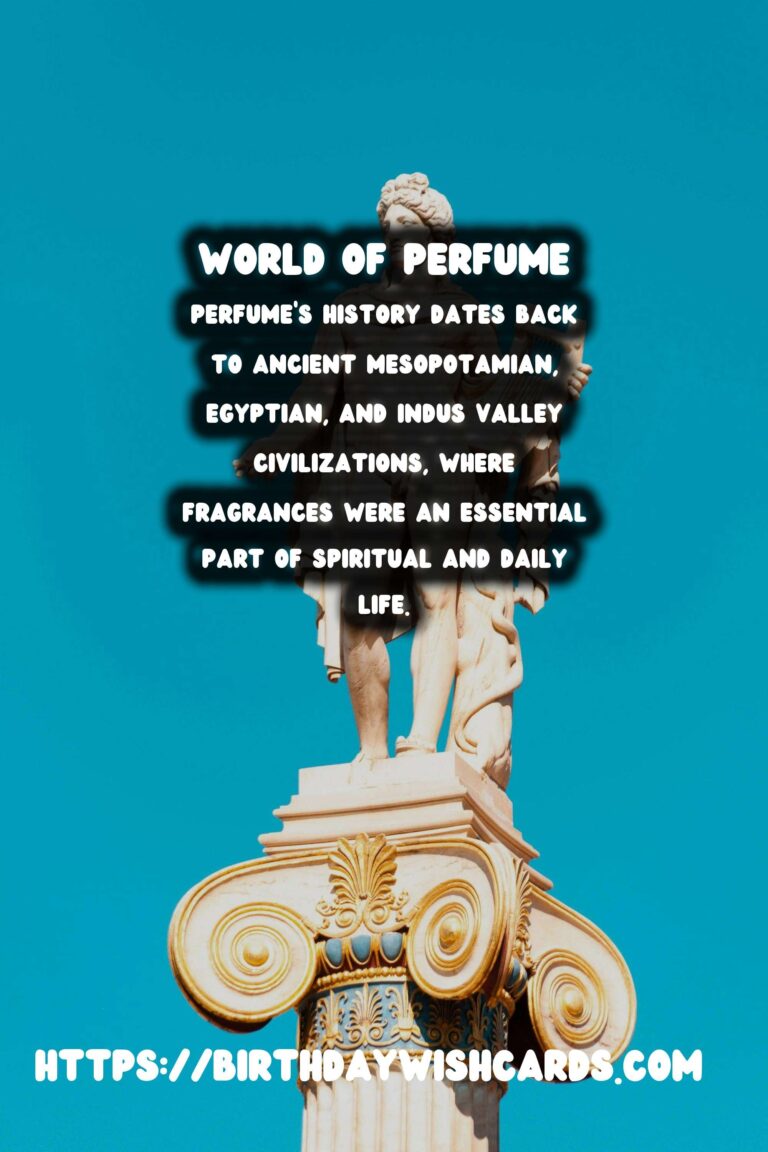
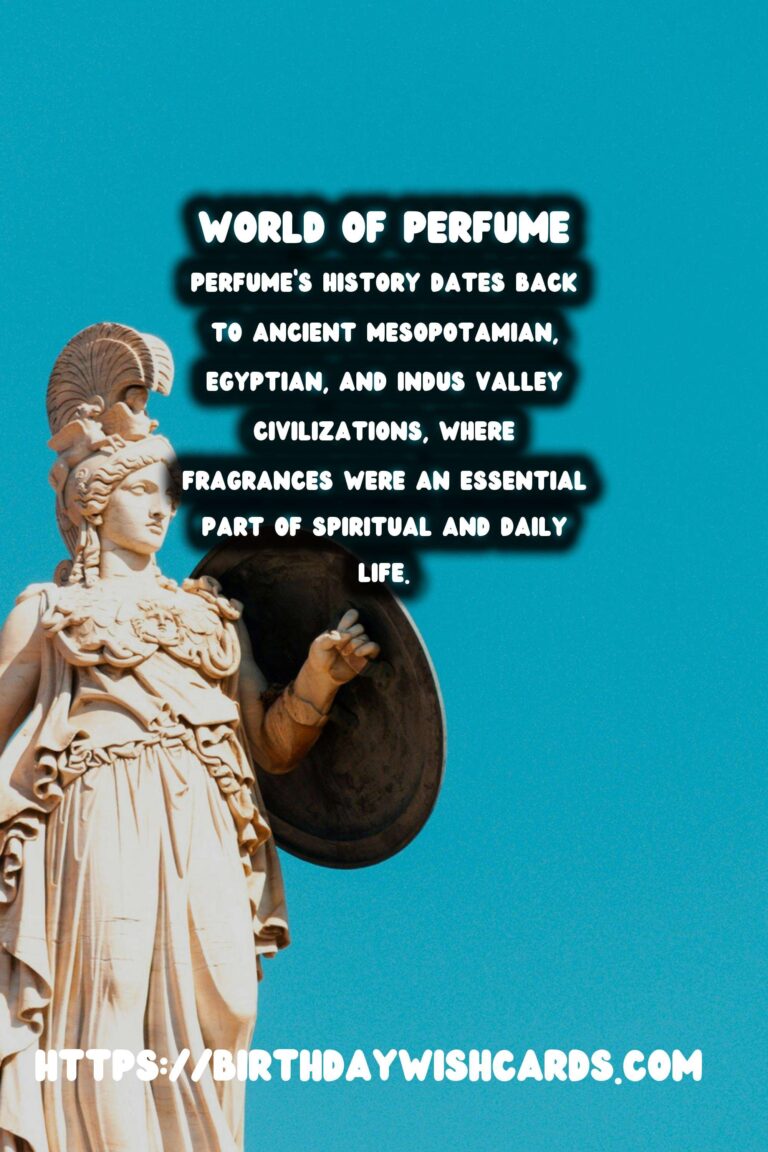
#PerfumeHistory #FragranceEvolution




